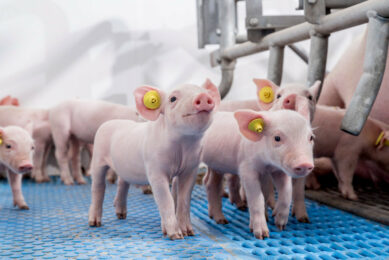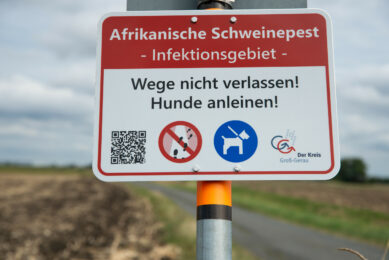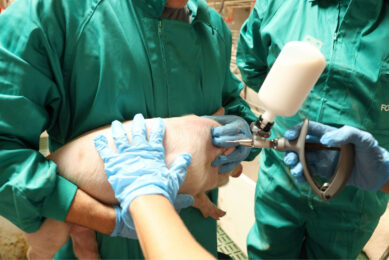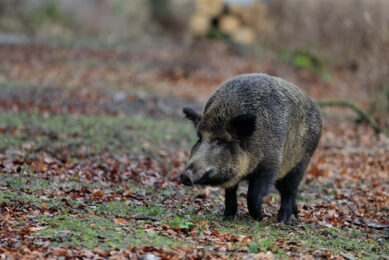ASF Belgium: 10 new cases; EU pig prices rising
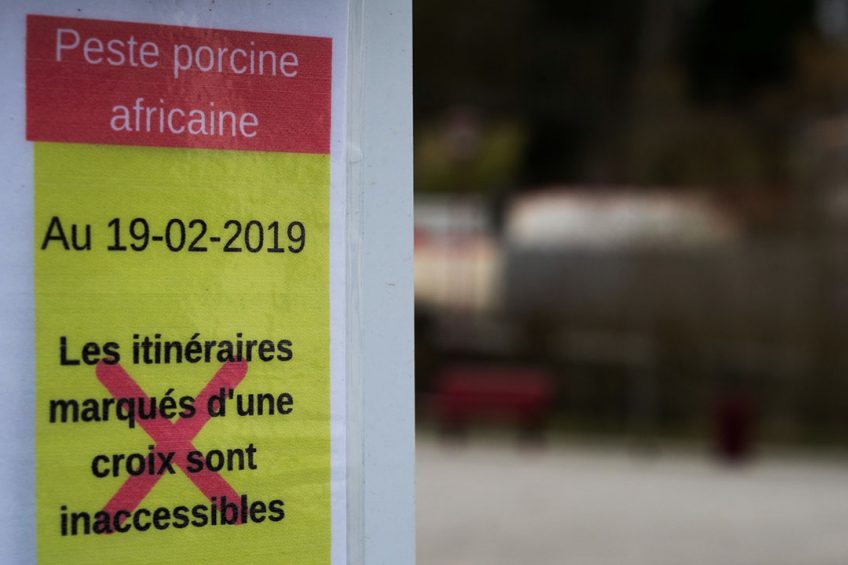
The southern Belgian province of Luxembourg has had 2 relatively quiet weeks with 5 and 10 new cases of African Swine Fever (ASF) in the country’s wild boar population.
The most recent update at the World Organisation for Animal Health (OIE) showed that last week, 10 new cases were reported. These were reported from 8 different communities in the infected zone. In comparison to late February and early March, these figures are low as in that time-frame there were weeks with over 60 infected carcasses per week.
All in all, in March in total 92 new cases of ASF in wild boar were confirmed, at considerable distance from February (217 cases) and January (121). In Belgium, the virus has never got near to domestic pigs. The total amount of cases reported to OIE is now 723.
Paths are open again for tourism and forestry
The problems are far from gone though, as René Collin, the Walloon minister for agriculture, responsible for the southern, French-speaking part of Belgium, allowed part of the infected area to be opened again for tourism and forestry purposes, as from April 6. The permission will be accompanied by advice to ‘stick to the paths’ and ‘clean bikes and shoes with bleach’.
Nevertheless, that decision has led to a lot of criticism, including from his counterpart Koen Van den Heuvel, responsible for agriculture in Flanders, the northern, Dutch-speaking part of the country. In that area, the majority of the country’s commercial swine producers can be found.
On his website, Mr Van den Heuvel said, “Even if additional measures would be taken, the risk that things go wrong appears to be way too big at the moment.”
French intensify preventive measures
The outbreaks in Belgium all take place very close to the French border. The French, however, have so far managed to keep wild boar with the virus out, and are only intensifying their measures to do so.
First of all, many miles of fence have been installed at the borders of the French regions Meuse, Ardennes and Meurthe-et-Moselle. Also, a so-called ‘white zone’ has been installed directly at the border where all wild boar are being shot to avoid the virus to hop onto the French wild boar population. So far 234 animals have been shot since mid-January and all tested negative for ASF. In addition, 49 negative carcasses were found.

Read more about pig health in the Pig Progress Health Tool
The French have also trained 346 veterinarians and technical advisors to be ‘biosecurity advisors’. They will in turn have to convey the message of applying strict biosecurity to swine farmers. Several pig farms not meeting these requirements have already been forced to stop doing business.
Last but not least, the French have also intensified the cleaning and disinfection of pig transport vehicles.
EU pig prices rising due to ASF
It’s not only bad tidings the pig industry in Europe (and the Americas) gets due to ASF. The flip side of the ongoing outbreaks in Asia means that prices for pigs are showing an upward trend – a tendency that was also noticed by Pig Progress market expert Dr John Strak last week.
Exact dimensions of the situation in China remain somewhat hazy, and hence real projections for the world pig market are also difficult to make. Nevertheless, a recent report by the United States Department of Agriculture (USDA) mentions a likely reduction of 13% of the Chinese pig herd in the course of 2019 – a decrease towards 374 million pigs. That means the total production of pork in China will reduce by 5% to 51.4 million tonnes.
Farm cullings as well as pre-emptive closures will lead to more demand on the international pig market. The USDA expects a 33% rise of Chinese pork imports in 2019. Demand at European slaughterhouses, mainly those in Germany and Spain, is up, leading to skyrocketing prices.
When current prices are compared to the beginning of the year, the tendency in several major countries is up strongly in the 1st week of April 2019:
• Germany: +25% (from € 1.36 to € 1.70/kg deadweight)
• Spain: +28% (from € 1.04 to € 1.33/kg deadweight)
• The Netherlands: +27% (from € 1.39 to € 1.77 deadweight)
• Denmark: +21% (from € 1.14 to € 1.38 deadweight)



